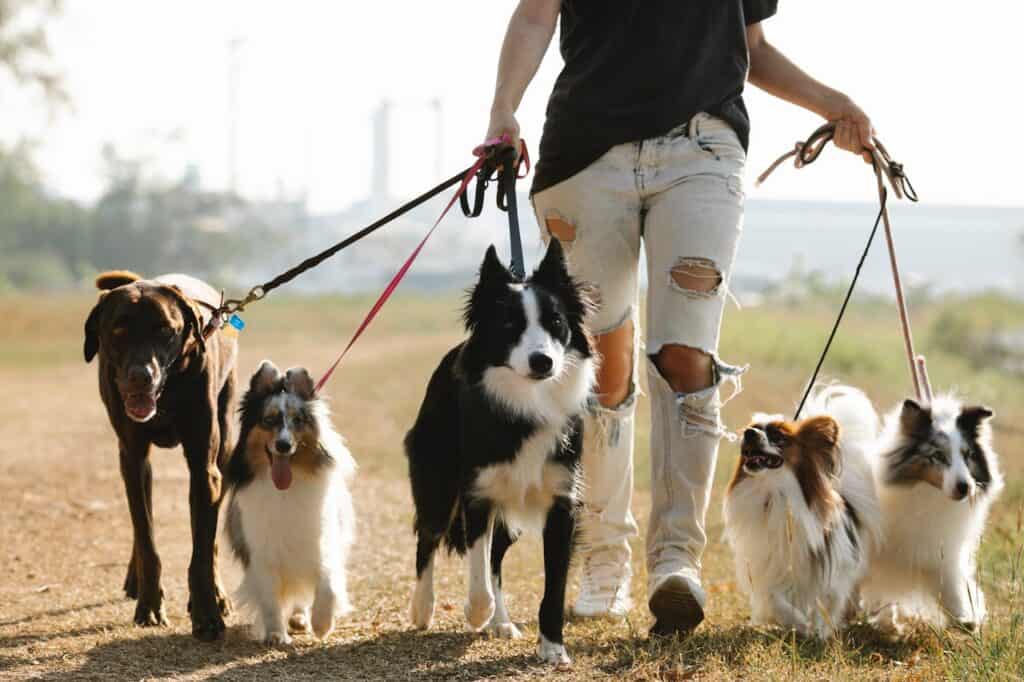
Introduction
Choosing and caring for a dog goes beyond basic knowledge. This comprehensive guide offers science-backed tips and actionable advice for prospective and current dog owners, ensuring you make informed decisions for your canine’s health and happiness.
1. Choosing a Dog: The Role of Genetics in Behavior
Before selecting a dog, consider the genetic predisposition of the breed. Research indicates that a dog’s temperament is influenced by its lineage. A study published in the Journal of Veterinary Behavior found that parental temperament, especially aggression, can be inherited. Therefore, inquire about the behavioral history of the dog’s parents, particularly regarding aggression or anxiety.
2. The Science of Nutrition: Tailoring Diet to Breed and Age
Canine nutrition should be breed and age-specific. According to a study in the Journal of Animal Science, larger breeds have different nutritional needs compared to smaller breeds, especially as puppies. Consult with a veterinarian to develop a diet plan that considers your dog’s specific dietary requirements, including any potential breed-specific health issues.
3. Exercise and Brain Development: A Neurological Perspective
Regular exercise is essential not just for physical health but also for cognitive development. Neuroscientific research suggests that physical activity promotes
brain health in dogs, similar to humans. Structured exercise, according to a study in the Journal of Veterinary Behavior, can improve cognitive function, reduce anxiety, and enhance learning in dogs. Tailor your dog’s exercise regime to their breed, age, and individual health needs, combining physical activities with training exercises for mental stimulation.
4. Preventative Health Care: The Importance of Early Detection
Regular veterinary check-ups are crucial for early detection and prevention of diseases. The American Veterinary Medical Association emphasizes the importance of vaccinations and routine health screenings to prevent common canine diseases. Discuss with your vet about a suitable schedule for vaccinations, dental checkups, and screenings for breed-specific ailments.
5. Advanced Training Techniques: Positive Reinforcement and Beyond
Modern dog training methods focus on positive reinforcement, but advanced techniques also incorporate understanding canine psychology. Research in Applied Animal Behaviour Science shows that dogs trained with reward-based methods exhibit fewer behavioral problems. Consider enrolling in training programs that use science-based, humane training techniques.
6. Grooming and Health: More Than Aesthetic
Regular grooming is vital for more than just your dog’s appearance. A study in Veterinary Dermatology found that regular brushing can help in early detection of skin issues. Establish a grooming routine that includes brushing, ear cleaning, and dental care, tailored to your dog’s breed and coat type.
7. Understanding Canine Communication: Body Language and Vocalizations
Dogs communicate through body language and vocalizations. A paper in Animal Cognition concluded that understanding these cues can significantly improve the human-dog relationship. Learn to interpret signs of stress, fear, happiness, and aggression for a better response to your dog’s needs.
8. Environmental Enrichment: Beyond Physical Space
Creating a stimulating environment is essential for your dog’s mental well-being. Research in the Journal of Veterinary Behavior shows that environmental enrichment can reduce stress and prevent problem behaviors. Provide toys, create interactive play sessions, and ensure they have a comfortable and safe space in your home.
9. Socialization: The Window of Opportunity
Proper socialization in the early stages of a dog’s life is critical. According to the American Society for the Prevention of Cruelty
to Animals (ASPCA), the prime socialization period for puppies is between 3 and 14 weeks of age. During this time, expose them to a variety of people, animals, and environments in a controlled and positive manner. This early socialization can significantly reduce the likelihood of fear and aggression in adult dogs.
10. Canine Health: Understanding Breed-Specific Issues
Each dog breed comes with its own set of potential health concerns. For example, research in Veterinary Journal highlights that certain large breeds are prone to hip dysplasia, while small breeds may suffer from patellar luxation. Being aware of these predispositions allows for proactive health management and tailored care.
11. The Role of Mental Stimulation in Preventing Cognitive Decline
Mental stimulation is not just for behavior management; it’s also crucial in preventing cognitive decline. A study in Ageing Research Reviews found that cognitive enrichment for dogs can delay or reduce the onset of age-related cognitive decline. Use puzzle toys, training games, and regular interaction to keep your dog mentally sharp.
12. Emergency Preparedness: The Overlooked Aspect of Pet Ownership
Being prepared for emergencies is a vital aspect of responsible pet ownership. Familiarize yourself with basic canine first aid and create an emergency plan that includes your pet, advises the Federal Emergency Management Agency (FEMA). This should include evacuation plans and a pet-friendly emergency kit.
Summary
At “Our World of Dogs” Dog Boarding, we deeply understand and cherish the importance of the comprehensive care and well-being of your pets. Acknowledging the diverse needs of our furry guests, we maintain a world-class, ultra-clean infrastructure, providing sustainable luxury in a nurturing environment. Our facility, strategically located for those searching for ‘pet boarding Bangalore‘ or ‘dog boarding near me‘, operates on eco-friendly principles, including full air conditioning powered by solar energy. While we don’t overstate our offerings, we take pride in providing a safe, comfortable, and environmentally conscious space for your beloved dogs, ensuring they receive the highest standard of care that covers all the above-discussed parameters.
